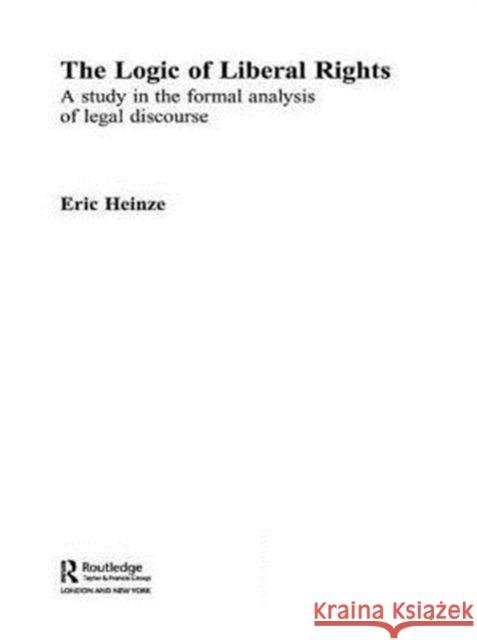The Logic of Liberal Rights: A Study in the Formal Analysis of Legal Discourse » książka
The Logic of Liberal Rights: A Study in the Formal Analysis of Legal Discourse
ISBN-13: 9780415300568 / Angielski / Twarda / 2003 / 352 str.
The Logic of Liberal Rights uses basic logic to develop a model of argument presupposed in all disputes about civil rights and liberties. No prior training in logic is required, as each step is explained. This analysis does not merely apply general logic to legal arguments but is also specifically tailored to the issues of civil rights and liberties. It shows that all arguments about civil rights and liberties presuppose one fixed structure and that there can be no original argument in rights disputes, except within the confines of that structure. Concepts arising in disputes about rights, like 'liberal' or 'democratic', are not mere abstractions but have a fixed and precise character.
This book integrates themes in legal theory, political science and moral philosophy, as well as the philosophy of logic and language. For the advanced scholar, the book provides a model presupposed by leading theoretical schools (liberal and critical, positivist and naturalist). For the student it provides a systematic theory of civil rights and liberties. Examples are drawn from the European Convention in Human Rights but no special knowledge of the Convention is assumed, as the issues analysed arise throughout the world. Such issues include problems of free speech, religious freedom, privacy, torture, unlawful detention and private property.











